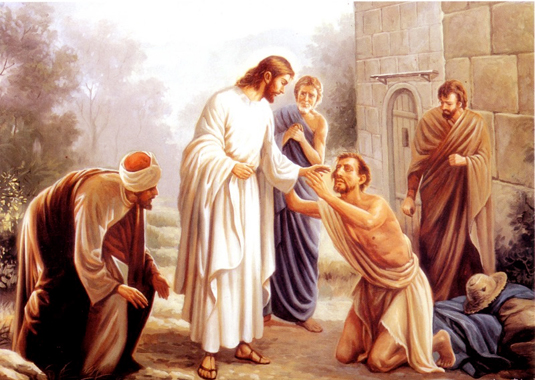Recently a student I’d taught decades ago made this comment to me: “It’s been more than 20 years since I took your class and I’ve forgotten most everything you taught. What I do remember from your class is that we’re supposed to always try not to make God look stupid.”
I hope that’s true. I hope that’s something people take away from my lectures and writings because I believe that the first task of any Christian apologetics is to rescue God from stupidity, arbitrariness, narrowness, legalism, rigidity, tribalism, and everything else that’s bad but gets associated with God. A healthy theology of God must underwrite all our apologetics and pastoral practices. Anything we do in the name of God should reflect God.
It’s no accident that atheism, anti-clericalism, and the many diatribes leveled against the church and religion today can always point to some bad theology or Church practice on which to base their skepticism and anger.
Atheism is always a parasite, feeding off bad religion. So too is much of the negativity towards the churches which is so common today. An anti-church attitude feeds on bad religion and so we who believe in God and Church should be examining ourselves more than defending ourselves.
Moreover more important than the criticism of atheists are the many people who have been hurt by their churches. A huge number of persons today no longer go to church or have a very strained relationship with their churches because what they’ve met in their churches doesn’t speak well of God.
I say this in sympathy. It’s not easy to do God adequately, let alone well. But we must try, and so all of our sacramental and pastoral practices need to reflect a healthy theology of God, that is, reflect the God whom Jesus incarnated and revealed. What did Jesus reveal about God?
First, that God has no favourites and that there must be full equality among races, among rich and poor, among slave and free and among male and female. No one person, race, gender or nation is more favored than others by God. Nobody is first. All are privileged.
Next, Jesus taught that God is especially compassionate and understanding towards the weak and towards sinners. Jesus scandalised his religious contemporaries by sitting down with public sinners without first asking them to repent. He welcomed everyone in ways that often offended the religious propriety of the time and he sometimes went against the religious sensitivity of his contemporaries, as we see from his conversation with the Samaritan woman or when he grants a healing to the daughter of a Syro-Phoenician woman. Moreover he asks us to be compassionate in the same way and immediately spells out what that means by telling us the God loves sinners and saints in exactly the same way. God does not have preferential love for the virtuous.
Shocking to us too is the fact that Jesus never defends himself when attacked. Moreover he is critical of those who, whatever their sincerity, try to block access to him. He surrenders himself to die rather than defend himself. He never meets hatred with hatred and dies loving and forgiving those who are killing him.
Jesus is also clear that it’s not necessarily those who explicitly profess God and religion who are his true followers, but rather those, irrespective of their explicit faith or church practice, who do the will of God on earth.
Finally, and centrally, Jesus is clear that his message is, first of all, good news for the poor, that any preaching in his name that isn’t good news for the poor is not his gospel.
We need to keep these things in mind even as we recognise the validity and importance of the ongoing debates among and within our churches about whom and what makes for true discipleship and true sacrament. It is important to ask what makes for a true sacrament and what conditions make for a valid and licit minister of a sacrament.
It is important too to ask who should be admitted to the Eucharist and it is important to set forth certain norms be followed in preparation for baptism, Eucharist and marriage.
Difficult pastoral questions arise around these issues, among other issues, and this is not suggesting that they should always be resolved in a way that most immediately and simplistically reflects God’s universal will for salvation and God’s infinite understanding and mercy.
Admittedly, sometimes the long-term benefit of living a hard truth can override the short-range need to more quickly take away the pain and the heartache. But, even so, a theology of God that reflects the compassion and mercy of God should always be reflected in every pastoral decision we make. Otherwise we make God look stupid – arbitrary, tribal, cruel, and antithetical to Church practice.
Marilynne Robinson says Christianity is too great a narrative to be underwritten by any lesser tale and that should forbid in particular its being subordinated to narrowness, legalism and lack of compassion.


 Fr Ronald Rolheiser
Fr Ronald Rolheiser
